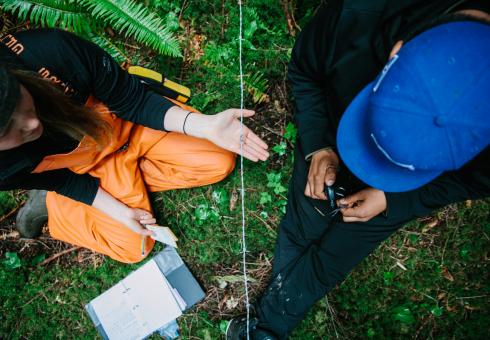Why be proactive about setting the research agenda?
Research can focus your guardian program in any number of directions. For instance:
- Ecological research can look at projects focused on climate change, water management, wildlife populations, impacts of contaminants, etc.
- Cultural research can gather knowledge from community members (e.g. interviews, mapping), verify and document cultural values and areas, identify archeological sites, etc.
- Socio-economic research can assess the value and benefits of stewardship activities, impacts of resource development, changes in the community, etc.
- Legal research can support the articulation of Indigenous laws, help create strategies for advocacy, etc.
Given the many different focuses research can have, it is important to know what your research priorities are. Research can be very time and resource intensive and can have the unintended effect of pulling your program off course. This is especially true when budgets are tight or the research doesn’t align well with community concerns or priorities. Sometimes, getting involved in someone else's research can become a drain on your program and the limited time and resources at your disposal. Think carefully about how research supports and contributes to the goals of your program.
With clearly identified research needs and priorities, however, you can proactively seek out funding and beneficial partnerships that provide critical information and analysis. Establishing research agreements up front with partners is an important way to ensure that research does not undermine your values or expectations. It helps ensure that opportunities for data analysis, new knowledge generation, capacity building and training, and informed decision-making are not missed.
The story 'Collaboration: The Key to Community Based Research' describes a solid approach to collaborative research.
